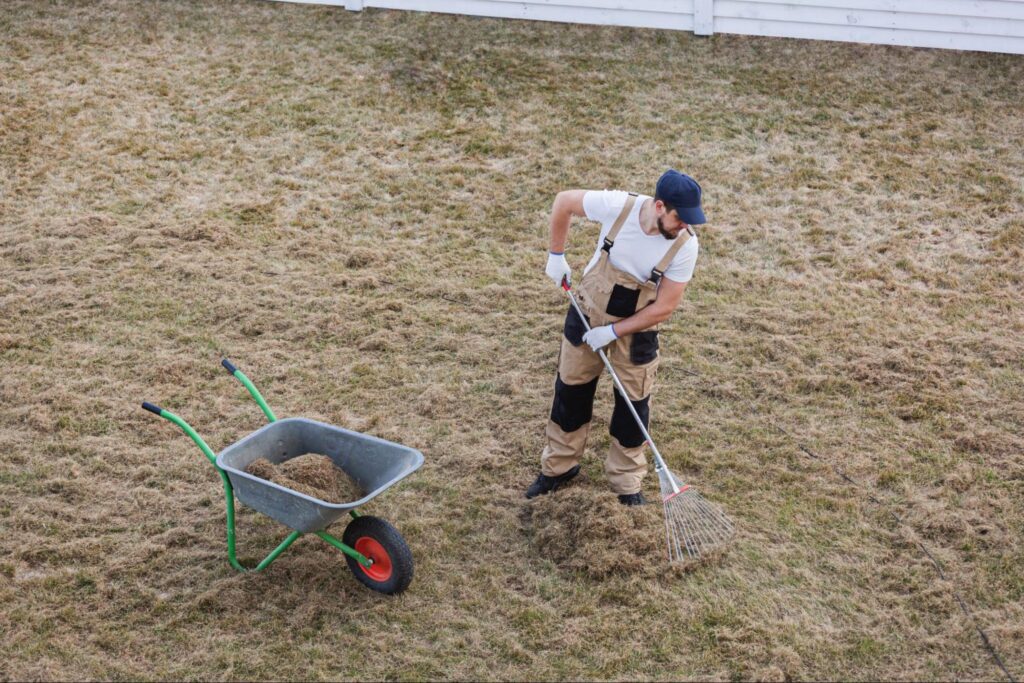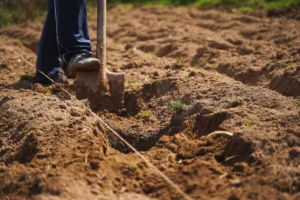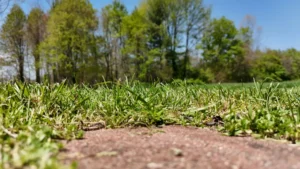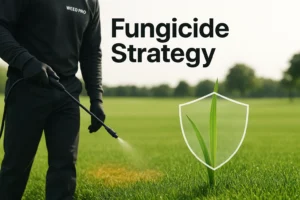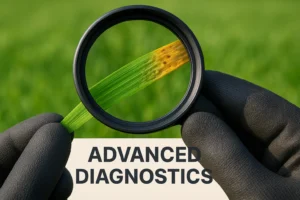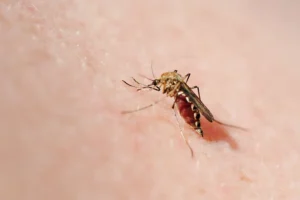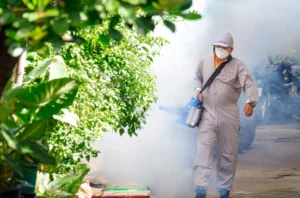Alpharetta has a warm, humid climate, along with red-clay soils, that create unique turf challenges for homeowners looking to establish a lush and healthy lawn. Whether battling aggressive weeds or a fungal disease outbreak, the most common turf problems in Alpharetta can diminish both curb appeal and property value. In this guide, you will learn about the most common lawn issues—weed invasions, disease pressure, pest infestations, drainage issues, and soil health deficiencies—and actionable solutions to solve each problem. We will offer simple identification methods, proven treatments, and preventive strategies to keep turf pests and diseases at bay, while also sharing expert reasons why WeedPro’s professional services are a proven solution in the Atlanta metro area. With all this information, you will be able to sustain a restored grass that is vigorous, disease-resistant, and weed-free year-round.
What Are the Most Common Lawn Problems in Alpharetta?
By assessing the climate, weather, and clay soils found in Alpharetta, a turfgrass homeowner faces the five leading turf problems:
- Weed Invasion – Fast-growing and aggressive grassy weeds and broadleaf weeds that can out-compete and weaken your turfgrass.
- Pest Infestations – Grubs, armyworms, mosquitoes, and fire ants attack weakened turfgrass by directly damaging turf roots and foliage.
- Poor drainage – Low-lying areas and clay soils often result in standing water and erosion.
- Soil Health deficiencies – Nutrient imbalances and compaction are limiting the grass’s ability to grow healthy roots.
- Lawn diseases – Warm, humid conditions are perfect for a wide range of fungal pathogens such as Brown Patch and Dollar Spot.
Each of the five problems contributes to the deterioration of turf density, turf color, and resiliency to stressors. If solved together (as equal parts), establishing turfgrass in a lawn with Alpharetta growing conditions is a much easier task.
Which Lawn Weeds Are Most Invasive in Alpharetta Yards?
Invasive weeds will out-compete our desirable turfgrasses through their rapid spreading and ability to extend stress periods. Invasives will include, but are not limited to:
- Crabgrass – A Thick, coarse, rug-like mat of light-green turfgrass that replaces a thin turf.
- Dandelion – Develops deep taproots and has yellow blossoms.
- Clover – Propagates via stolons and generates nitrogen for its growth.
Controlling these weeds early on helps to eliminate seed production and reduces competition in the lawn.
What Lawn Diseases Frequently Affect Alpharetta Lawns?
Alpharetta’s heat and humidity create favorable conditions for fungal diseases, which infect the blades of turfgrass. Some examples of these diseases include:
- Brown Patch – Circular brown rings in St. Augustine and Fescue
- Dollar Spot – Silver-dollar-sized spots in individual blades with yellow, straw-colored patches in the middle of the spots.
- Take-All Root Rot – Brown roots that are very deep, clammy when pulling on the blades, causing thinning over large areas of turf.
These diseases can effectively be treated in turf through proper detection and appropriately timed fungicide applications.
How Do Pest Infestations Impact Alpharetta Lawns?
Soil-dwelling larvae and surface pests harm grass by rupturing root systems and damaging the leaves. Examples of pests that infest turf grass are:
- White Grubs – Feed on roots, creating dead patches.
- Armyworms – Feed on leaves, stripping blades bare.
- Fire Ants – Damage turf by removing blades and disturbing soil.
- Mosquitos – Larvae in standing water can be a health risk.
Utilizing an integrated pest management system will protect your turf and your family’s quality of life.
Why Is Poor Drainage a Problem for Alpharetta Homeowners?
Alpharetta homes are built on clay soils that do not allow water to infiltrate, resulting in inundated turf and leaching of nutrients downward. Drainage creates issues such as:
- Suffocation of turf roots, which can lead to rot.
- Increase in fungal diseases due to saturated soils.
- Erosion if your lawn is on a slope.
Addressing drainage issues will prevent long-lasting damage to your turf and keep your lawn healthy.
How Does Soil Health Affect Lawn Quality in Alpharetta?
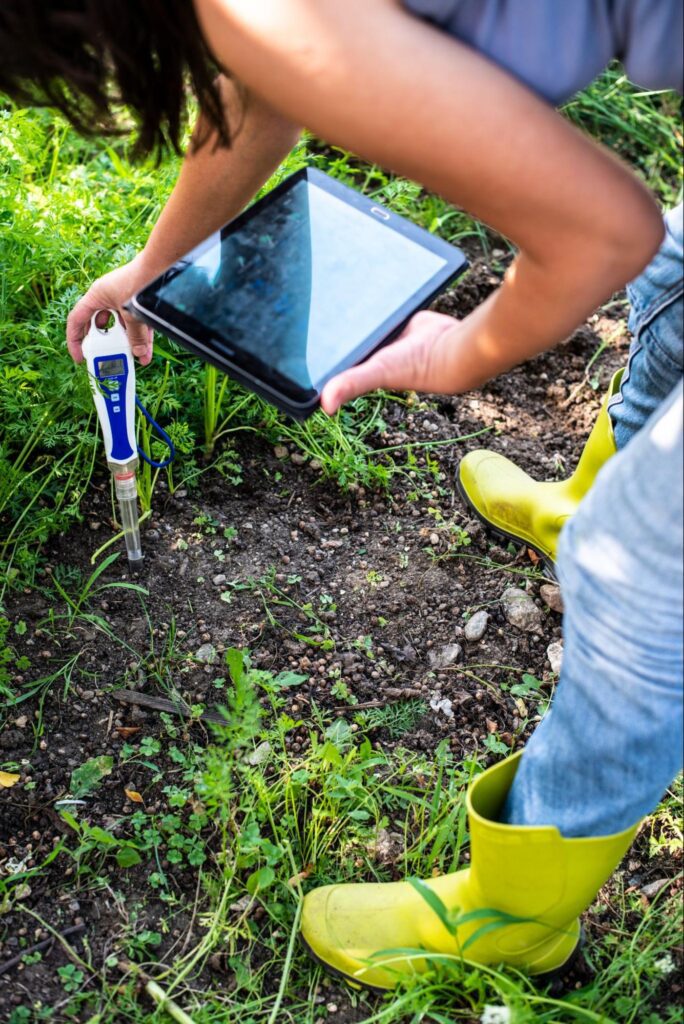
Soil health is defined by the ability of the soil to provide decent oxygen, water, and nutrients to support a healthy root system and dense turf. Common issues that can affect the health of your lawn are:
- Nitrogen Deficiency – Slow growth that is light green or yellow.
- Phosphorus Deficiency – Weak roots.
- pH Imbalance – Nutrients are not available in clay soils.
- Compaction – Limited root development.
Amending and testing the soil provides the basis for healthy, vibrant lawns.
How Can Homeowners Identify and Control Weed Invasion in Alpharetta Lawns?
To manage weed growth, weed identification and treatment need to occur in a timely manner. Pre-emergent herbicides can prevent the germination of weed seeds, whereas post-emergent herbicides are treatments that target weeds that have already emerged. Cultural practices, such as mowing at the right height and making applications at the recommended times, can help reduce re-infestation levels of weeds. All of this management will help produce a thick turf that crowds out weed growth.
What Are the Signs of Crabgrass and Broadleaf Weeds in Alpharetta?
If you have thin turf or have stressed your turf, crabgrass and broadleaf weeds will have very obvious signs:
- Crabgrass: Flat growth with wider leaf blades, light green in color.
- Dandelion: Very low rosettes of lobed leaves with bright yellow flowers.
- Clover: Three leaflets with white or pink flowers.
If you catch them early enough, you can also do a spot treatment before weed seeds are disseminated.
Which Weed Control Methods Work Best in Alpharetta?
A highly effective weed control program will incorporate a range of timings and types of herbicides, as well as cultural controls.
- Timing of pre-emergent barrier applications in late winter can prevent crabgrass from germinating.
- You can do spot treatments of post-emergent herbicides that target broadleaf weeds.
- Organic options, such as corn gluten meal, can help suppress weed seed germination.
- Core aeration can enhance turf density by providing root growth space in full sun.
The timing of all these cultural controls and herbicide applications can extend the longevity of turf quality.
How Does Professional Weed Control in Alpharetta Compare to DIY?
Professional service offers accurate application, consideration for safety, and longevity of results:
- Precise targeting: New formulations of herbicides that target specific localized weed species.
- Safety: considerations for herbicide application, considerations for human safety, and environmental concerns.
- Assured Control: We will come back to verify eradication.
- Time Savings: The technicians will handle the work, allowing you to save on effort and expertise.
Having experts do the work reduces guesswork and accelerates turf recovery.
What Preventative Steps Can Alpharetta Homeowners Take Against Weeds?
Utilizing consistent cultural practices can keep weeds somewhat in check while sustaining vigorous turf:
- Maintain grass height of 3–3.5 inches to shade weed seedlings.
- Fertilize every season with slow-release nitrogen for optimal turf growth.
- Aerate compacted areas to increase rooting depth.
- If applied correctly, water deeply and infrequently to maintain a healthy turf.
Regular turf maintenance creates a dense turf cover that is less liable to weed invasions.
What Are the Key Lawn Diseases in Alpharetta and How Are They Treated?
Fungal diseases thrive in the summer heat of Alpharetta, creating unsightly patches or thinning. Integrated disease management is the combination of cultural changes, fungicide applications, and immediate intervention to promote turf health, well-being, and inhibit the continued spread.
| Disease | Symptom | Treatment |
|---|---|---|
| Brown Patch | Circular brown rings, yellow halo | Systemic fungicide spray |
| Dollar Spot | 1–2″ straw-colored spots | Preventive fungicide schedule |
| Take-All Root Rot | Deep root browning, turf thinning | Soil drenches and aeration |
How to Recognize Brown Patch and Dollar Spot in Alpharetta Lawns?
Brown Patch is characterized by tan centers and inconsistent brown rings; whereas Dollar Spot can show small lesions with a circular size of approximately. 2cm, just like the shape of a dollar or a pie plate. Dollar Spot and Brown Patch appear in high humidity and evening leaf wetness. The earlier you can recognize these diseases and/or correct your watering practices, the more you will be able to mitigate the severity of current and potentially prevent losing additional turf.
What Causes Lawn Fungus in Alpharetta’s Climate?
Warm days, humid nights, and overwatering create optimal conditions for fungi:
- Leaf wetness extending after daybreak
- Spore germination
- Thin turf stressed from nutrient deficiencies.
Timing irrigation and improving air movement facilitate the prevention and management of disease outbreaks.
Which Fungicide Treatments Are Effective for Alpharetta Lawns?
Reliably control diseases with one of these fungicide classes:
- Azoxystrobin: Broad-spectrum control of patches and spots.
- Chlorothalonil: A protectant spray to be used preventively.
- Propiconazole: Systemic action fungicide for active infection.
- Organic copper-based sprays: Eco-friendly disease suppression.
Ways to avoid the development of fungicide resistance include switching to a different class of action per season.
How Can Homeowners Prevent Lawn Diseases in Alpharetta?
Proactive maintenance is the best defense against fungus problems:
- First, cut off watering and water in the early morning, only enough to moisten the dry surface and prevent leaf wetness.
- Keep the grass at recommended mowing heights to avoid stress.
- Provide balanced fertilization to improve turf density.
- If possible, remove overgrown shrubs to help improve air flow in the turf.
Prevention makes pathogen environments less conducive to disease.
How Do Pest Infestations Affect Alpharetta Lawns and What Are the Solutions?
Pests such as grubs and armyworms feed on the roots and foliage, respectively. There’s relevance when safety issues arise from fire ants and mosquitoes. Integrated Pest Management (IPM) uses monitoring, biological controls, and targeted insecticides as components to promote the health of turf and family.
What Are the Signs of Grub and Armyworm Damage in Alpharetta?
Grubs typically present as irregular, brown patches that lift easily, while armyworms devour grass blades, forming narrow, short bands that are characteristic of their feeding behavior. If left untreated, both pest infestations can accelerate turf decline, resulting in bare spots and the proliferation of opportunistic turf species and weedy species.
How Can Homeowners Control Mosquitoes and Fire Ants in Their Lawns?
Examples of effective tactics include:
- Reducing standing water to prevent mosquito breeding.
- Using labeled larvicides and bait granules for mosquitoes.
- Treating fire ant mounds with either insect granules or bait.
- Attracting natural predators of mosquitoes and fire ants with beneficial nematodes.
These actions can help restore comfort and safety to outdoor living areas.
How Can Pest Prevention Improve Lawn Health in Alpharetta?
Maintain these practices of pest pressure to allow the turf to thrive:
- Monitoring the turf and soil regularly for early signs
- Fertilizing to ensure healthy root systems
- Not overwatering, which attracts larvae
- Introducing beneficial insects through organic amendments to soils
Preventative practices are the foundation for pest-resistant lawns.
What Causes Poor Drainage in Alpharetta Yards and How Can It Be Fixed?
Standing water in clay soils suffocates roots and promotes disease and topsoil erosion. Fixing poor drainage involves working both structurally and maintaining drainage of water away from your lawn and foundation.
How Does Standing Water Damage Alpharetta Lawns?
Prolonged waterlogged soils typically lead to the following:
- Root suffocation and root rot
- Thinned turf and bare areas
- Additional fungal and insect challenges
- Compacting the soil when mowing wet
It is important to restore water to the proper flow and prevent long-term damage to the turf.
What Are the Benefits of French Drain Installation in Alpharetta?
French drains manage excess water in the following ways:
- Rerouting water away from low areas
- Providing relief to saturated soils in turf root zones
- Reducing erosion in sloped yards
- Reducing the risk of disease by preventing standing water
Having a professional install the drain will ensure proper trench depth, pipe slope/grade, and gravel bedding for reliable drainage.
How Can Yard Grading and Erosion Control Improve Drainage?
Re-sloping your yard and implementing erosion controls will help shape your yard to:
- Redirect the natural flow of water to drains or swales
- Reduce soil loss on slopes with the installation of turf reinforcement mats
- Redirect fluctuating surface flow safely away from structures
The re-grading process will help soil stabilize, preserve lawn health.
What Maintenance Practices Help Prevent Drainage Problems in Alpharetta?
Conducting regular maintenance work can help preserve drainage ability:
- Clean gutters and downspouts to prevent overflow
- Topdress low spots with soil to maintain a healthy grade
- Do not compact soil by mowing when it rains.
- Check gravel drainage channels for debris.
Regular maintenance will help keep your lawn dry and healthy throughout the year.
How Does Soil Health Impact Lawn Quality in Alpharetta and How Can It Be Improved?
Soil health supports the resiliency of turf by providing essential nutrients, water, and aeration. Testing the soil and researching the state’s proper amendments can address deficiencies in your lawn’s soil compaction, allowing the root system to flourish and enabling your grass to develop more adequately in the harsh soil conditions found in the Alpharetta area.
What Are Common Nutrient Deficiencies in Alpharetta Lawns?
Soils with clay subsoils can show the following deficiencies:
- Nitrogen: pale or yellow color and slow growth
- Phosphorus: shallow root systems and drought susceptibility
- Potassium: reduced disease resistance and cold tolerability
- Iron: uniform chlorosis, very common in high pH soils
Attending to any individual deficiency will restore vibrant color and density to the turf.
How Is Soil Testing Done for Alpharetta Lawns?
The professional testing process will typically include some of the following:
- Collect composite samples from multiple points in the yard.
- Send it to a certified lab to obtain pH and nutrient levels.
- Once the results are received, schedule an appointment to go over the results with a turf specialist.
- Establish an application plan based on lab recommendations.
Testing will ensure the accurate application of fertilizer and lime.
What Fertilization Programs Are Best for Alpharetta Turfgrass?
For programs that are reasonable and beneficial, the goal is a combination of timing, season, and nutrient ratios:
- Early Spring: High nitrogen starter blend to help reestablish grass growth.
- Late Spring to Early Summer: Use a slow-release fertilizer that will sustain color throughout the fall.
- Fall: Balanced NPK with less nitrogen applied is better than high levels of nitrogen because applications are intended to promote root health.
- Winter: Slow-release potassium will help reduce cold damage.
All plans will be individualized to maximize density and provide a lush turf to withstand stress.
Tackle Alpharetta’s Biggest Lawn Issues
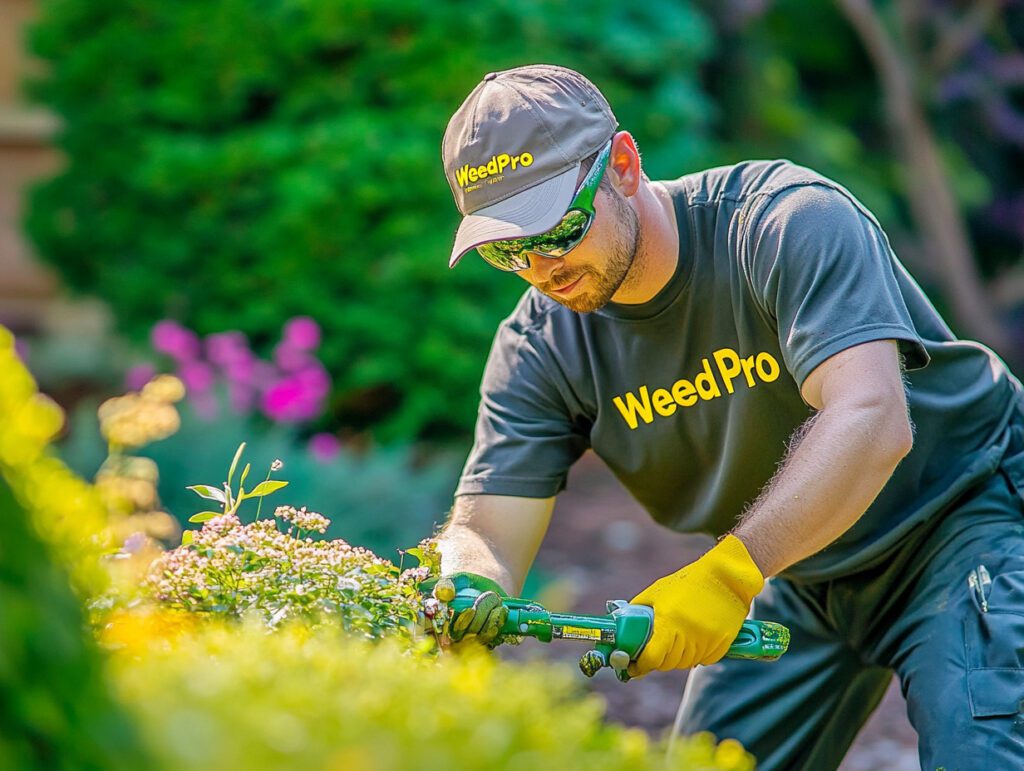
Homeowners in Alpharetta know that lawn maintenance is far more than just mowing and watering the grass. Weeds popping up, insects infesting your lawn, patchy growth, and bare spots; all are present in our Alpharetta lawns. Early identification of issues and applying the correct fix will prevent the condition of those turf issues from escalating from minor issues to headaches. With the proper application, you can return balance and beauty to your yard during all seasons. The following article outlines the typical issues and productive fixes that enhance lawn quality, specifically for the climate and soil of Alpharetta. Do not guess or troubleshoot; be strategic and provide value to your lawn!
Contact WeedPro to address these common lawn issues with appropriate care and treatment programs in Alpharetta.
FAQs
Can poor soil cause lawn problems?
Yes, compacted or nutrient-poor soil leads to thinning grass and patchy turf. Healthy soil structure and proper fertilization are essential for maintaining vibrant grass growth.
Do lawn pests damage grass roots?
Many lawn pests, such as grubs and mole crickets, feed directly on grass roots. This can cause sections of turf to die off or lift easily from the soil.
Learn About Lawn Repair Options in Atlanta
Ready to explore professional solutions? Continue with our article: “Understanding Atlanta’s Lawn Repair Program: Average Costs and What to Expect.“

